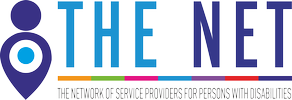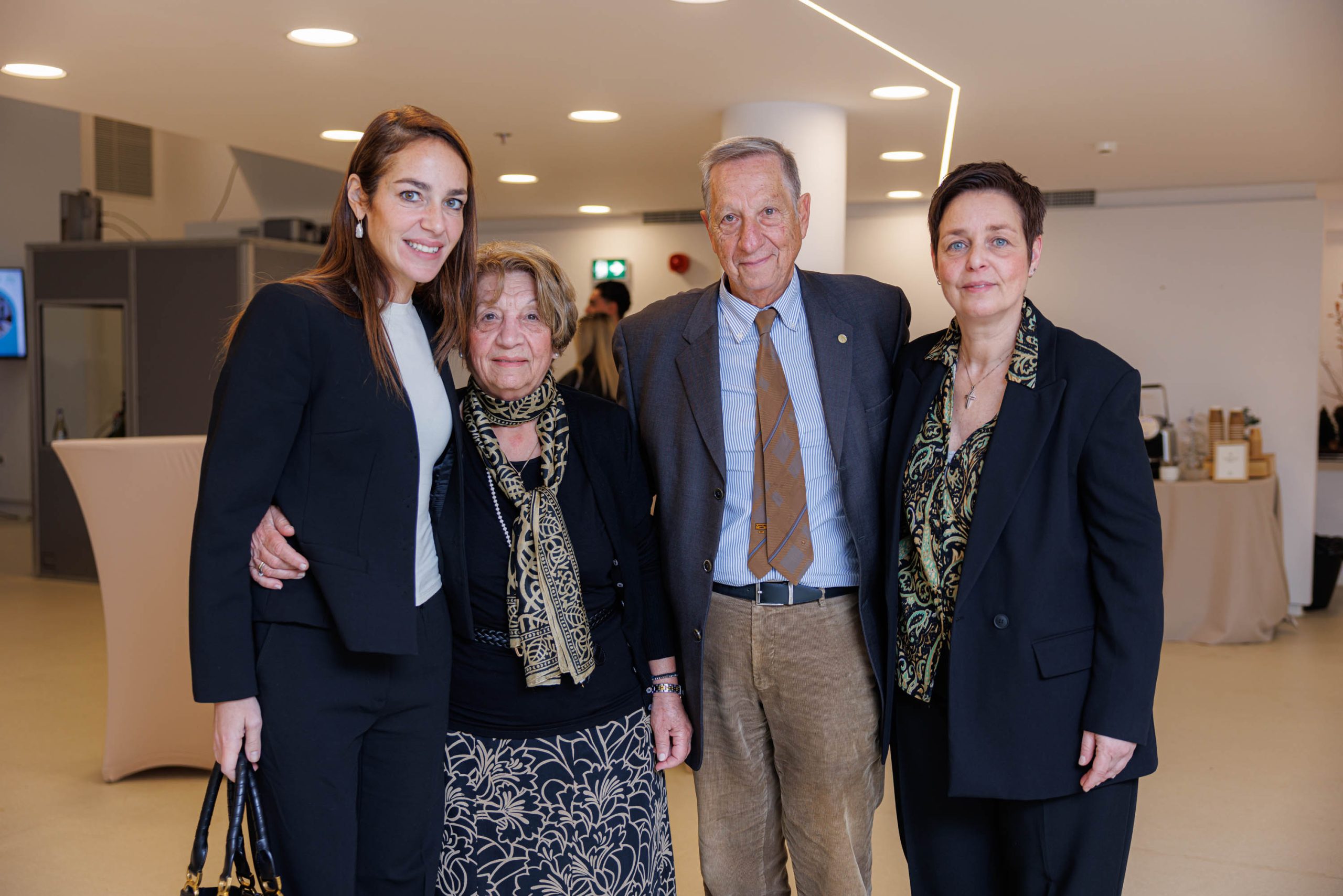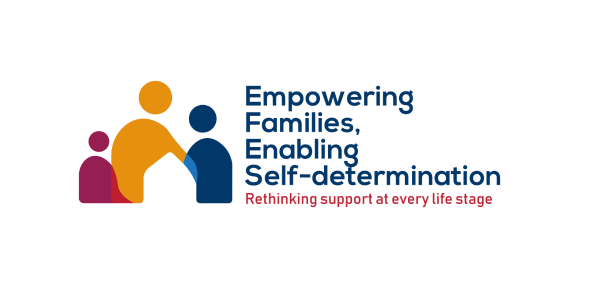Press Release- National Raising Awareness Event THE NET & EPR 8/12/2025
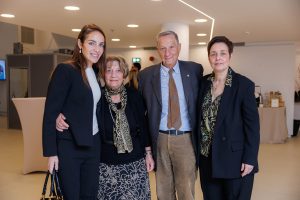
On Monday, December 8, 2025, the Greek Network of Service Providers for Persons with Disabilities (THE NET) and the European Platform for Rehabilitation (EPR), organized a National Awareness Event under the title “Quality and Excellence in services for persons with disabilities: Aiming at a European, but locally meaningful, Quality Assurance system in Greece.”
Using as a vehicle the presentation of the European social services quality assurance system, EQUASS, created by EPR, the event highlighted all the necessary changes for a modern and reliable quality assurance system in services for persons with disabilities.
 The event, held under the auspices of the Ministry of Social Cohesion and Family, was attended by the Minister of Social Cohesion and Family, Ms. Domna Michailidou, as representative of the Prime Minister.
The event, held under the auspices of the Ministry of Social Cohesion and Family, was attended by the Minister of Social Cohesion and Family, Ms. Domna Michailidou, as representative of the Prime Minister.
Referring to important government interventions, Ms. Michailidou emphasized that all actions & service provisions have a common denominator: the need for a coherent quality framework that evaluates, improves, and ensures that services remain person-oriented and focused on their daily lives.
As she pointed out, THE NET's initiative to examine the adaptation of European practices to the Greek context is a crucial step towards an institutional maturity of disability services in Greece. "Today's discussion is not theoretical. It is the foundation for the services of the next decade” she said.
The event was also supported by Archbishop Ieronymos, that was represented by the Reverend Protopresbyter Priest Dimitrios Nikou, who spoke about the Greek Orthodox Church's long-standing involvement in social welfare services for people with disabilities and conveyed His Beautitude's warm wishes for the successful works of THE NET and the event.
The Secretary General & members of the EPR Board, EQUASS experts, university professors, the President , the Secretary General & the Executive Secretary of THE NET’s Board, as well as scientific & administrative representatives of member organizations of EPR & THE NET from the EU and Greece , with experience in the quality assurance system EQUASS, demonstrated in their presentations the high correlation between the quality of social services provided to persons with disabilities and the quality of life they ultimately achieve. They explored the exceptional potential of the EQUASS model to strengthen and facilitate the organization and documentation of all good practices in the provision of services for persons with disabilities by non-profit providers, and ultimately focused on the measurable, positive life outcomes for beneficiaries achieved through the voluntary implementation of EQUASS in organizations in Greece and the EU, with concrete examples, programs, interventions, and case studies.
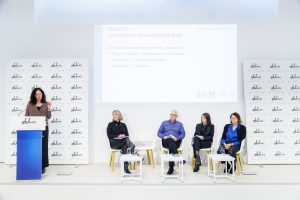
The audience of the event—board & management members and professionals from non-profit service providers for persons with disabilities—members of THE NET, academics, quality experts, and invited service providers from the EU—attended the event in the beautiful conference hall of Stelios Foundation in Plaka, as well as online throughout Greece.
In the conclusions of the event, THE NET highlighted the maturity of the Greek institutional framework and of the members of THE NET, for the transition to a modern and reliable quality assurance system for social services for persons with disabilities in Greece.
The EPR highlighted an analogous maturity at European level, as well as the exceptional potential of EQUASS quality assurance system to operate either independently or in combination with any other certification system.
The final, joint conclusion of THE NET & EPR, was that quality assurance of social services for people with disabilities cannot be considered a 'luxury' or a 'voluntary commitment to excellence' because the quality of services is a fundamental right of people with disabilities and an essential condition—but also an indicator of implementation—of the UN Convention on the Rights of Persons with Disabilities (UNCRPD), with the sole purpose and goal of quality of life (QoL).
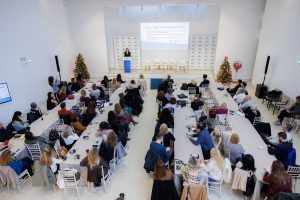
*The event was made possible with the kind support of the Stelios Foundation.
EPR & THE NET's Awareness Event- Quality and Excellence in services for persons with disabilities: Aiming at a European, but locally meaningful, Quality Assurance in Greece

Athens, Greece 8 December 2025, 9:30-16:00 Greek time
* This event is open to the public
On December 8, EPR will hold a National Awareness Raising Event (NARE) in Athens, Greece. This event will be co-hosted by THE NET, the Greek Network of Services to Persons with Disabilities, and supported by the Stelios Foundation, under the auspices of the Ministry of Social Cohesion and Family.
The event will bring together a diverse group of European, national, regional and local stakeholders, experts on services for persons with disabilities, policy making for social services, and on continuous improvement and quality assurance. This event will be an opportunity to learn from experts, to discuss about the quality of services in Greece and in Europe, engage in meaningful exchanges, and hear proven practices on the topic.
Practicalities
Programme: The program will be available here;
Registration: To register, please fill out the registration form.
Registration deadline: tbc
Location: Stelios Foundation Conference Hall, Kidathinaion 22, Athens, 105 58, Greece.
Under the auspices of:

Conclusions of the EASPD Conference in Turin (2025)
“Empowering families, enabling self-determination: Rethinking support at every life stage” (20-21 October 2025)
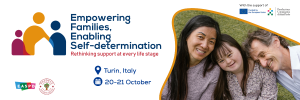
The recent EASPD Conference was extremely rich in conclusions, particularly in recognizing the need to revise the “special service” perspective of most service providers for persons with disabilities towards a more holistic approach that accompanies individuals throughout their lives.
“It reminded all service providers for persons with disabilities that the long-term care of persons with disabilities cannot be the sole responsibility of their families,” wrote EASPD President Kirsi Konola in her note at the end of the Conference. Kirsi Konola, wrote in her note at the end of the conference. Instead, she said, families must have organized support, cooperation, and participation from service providers at all stages of the life of the person with a disability, with the goal of living in the community.
Several good practices were presented for supporting people with disabilities throughout their lives in the community by service providers, with the active participation of their families and the state.
At the same time, however, it was explicitly acknowledged that there is a significant lack of services across Europe that cover the full range of needs of families of persons with disabilities, who currently bear a disproportionate burden. Particular mention was made of the strong gender dimension of informal care, which, according to sociological data from across Europe shows that it mainly burdens women, making them “hostages” to the long-term care of their loved ones and violating their human rights.
Furthermore, all speakers acknowledged the significant lack of services for persons with disabilities and increased and/or special care needs throughout Europe, which poses a serious risk of institutionalization for them.
A common position/proposal to solve the problem, both from the perspective of formal and informal long-term care providers was that long-term care should officially become a shared responsibility between formal and informal carers, through the co-creation of social empowerment, integration, support, and care programs, with the common goal of strengthening and empowering the individual choices of persons with disabilities for an inclusive and happy life in the community.
The above comments were made by almost all the speakers, the President of EASPD, Kirsi Konola, and the President of the pan-European network of informal carers EURO CARERS, John Dunne.
During the conference and the workshops in which the representative of the NET participated, the “attitude” of employees in formal long-term care for persons with disabilities, i.e., their “discomfort” or even refusal to provide or participate in primary care for persons with disabilities, which they usually wish to assign to purely auxiliary staff.
This attitude was recognized by many providers and many employees who participated in the workshops as as particularly humiliating for persons with disabilities, as dysfunctional in its application within institutions and, above all, as a violation of their human rights to maintain their human dignity.
The prevailing counterproposal was that service providers for persons with disabilities must first serve their rights as human beings and then their rights as persons with disabilities.
There, it was recognized that the training of employees in standard long-term care for persons with disabilities, regardless of their specialty, should not focus exclusively on “specialization,” but to take a step “back to basics” and remind them that “we serve people first and persons with disabilities second.”
It was precisely this last statement, “we serve people first and persons with disabilities second,” that Stefania Ilinca, Technical Officer on long-term care at the WHO, focused her intervention at the Conference on.
Furthermore, in the concluding remarks of the final panel of the Conference, coordinated by EASPD Deputy Secretary General Timothy Ghilain, Inge Volleberg -INCLUSION EUROPE, and Julie Beadle-Brown -CALIFORNIA COMMUNITY LIVING NETWORK, in response to a question from T. Ghilain on long-term care for people with increased or special care needs, took a joint and very firm stance that
a) long-term care in general for persons with disabilities, and in particular for persons with increased care needs, cannot continue to be “abandoned” to informal carers, as is the case in the majority of cases at present (as suggested by Inge Volleberg), and that
b) no policy, program, or good practice for the long-term care of persons with disabilities should be prioritized and funded (as proposed by Julie Beadle-Brown) if it is not truly inclusive and does not contain very specific and applied provisions for persons with disabilities and increased and/or special care needs.
All of the above were summarised as conclusions of the Conference and became personal commitments of the President of EASPD, Kirsi Konola, in her personal statement issued at the end of the Conference.
*The above report was drafted by the chair of the Executive Committee of THE NET, Ms Julia Stavridou, who represented THE NET at the conference.
Conclusions of the EASPD Conference in Turin (2025)
“Empowering families, enabling self-determination: Rethinking support at every life stage”

The recent EASPD Conference was extremely rich in conclusions, particularly in recognizing the need to revise the "special service" perspective of most service providers for persons with disabilities towards a more holistic approach that accompanies individuals throughout their lives.
"It reminded all service providers for persons with disabilities that the long-term care of persons with disabilities cannot be the sole responsibility of their families," wrote EASPD President Kirsi Konola in her note at the end of the Conference. Kirsi Konola, wrote in her note at the end of the conference. Instead, she said, families must have organized support, cooperation, and participation from service providers at all stages of the life of the person with a disability, with the goal of living in the community.
Several good practices were presented for supporting people with disabilities throughout their lives in the community by service providers, with the active participation of their families and the state.
At the same time, however, it was explicitly acknowledged that there is a significant lack of services across Europe that cover the full range of needs of families of persons with disabilities, who currently bear a disproportionate burden. Particular mention was made of the strong gender dimension of informal care, which, according to sociological data from across Europe shows that it mainly burdens women, making them "hostages" to the long-term care of their loved ones and violating their human rights.
Furthermore, all speakers acknowledged the significant lack of services for persons with disabilities and increased and/or special care needs throughout Europe, which poses a serious risk of institutionalization for them.
A common position/proposal to solve the problem, both from the perspective of formal and informal long-term care providers was that long-term care should officially become a shared responsibility between formal and informal carers, through the co-creation of social empowerment, integration, support, and care programs, with the common goal of strengthening and empowering the individual choices of persons with disabilities for an inclusive and happy life in the community.
The above comments were made by almost all the speakers, the President of EASPD, Kirsi Konola, and the President of the European network of informal carers EURO CARERS, John Dunne.
During the conference and the workshops in which the representative of the NET participated, the "attitude" of employees in formal long-term care for persons with disabilities, i.e., their "discomfort" or even refusal to provide or participate in primary care for persons with disabilities, which they usually wish to assign to purely auxiliary staff.
This attitude was recognized by many providers and many employees who participated in the workshops as as particularly humiliating for persons with disabilities, as dysfunctional in its application within institutions and, above all, as a violation of their human rights to maintain their human dignity.
The prevailing counterproposal was that service providers for persons with disabilities must first serve their rights as human beings and then their rights as persons with disabilities.
There, it was recognized that the training of employees in standard long-term care for persons with disabilities, regardless of their specialty, should not focus exclusively on "specialization," but to take a step "back to basics" and remind them that "we serve people first and persons with disabilities second."
It was precisely this last statement, "we serve people first and persons with disabilities second," that Stefania Ilinca, Technical Officer on long-term care at the WHO, focused her intervention at the Conference on.
Furthermore, in the concluding remarks of the final panel of the Conference, coordinated by EASPD Deputy Secretary General Timothy Ghilain, Inge Volleberg -INCLUSION EUROPE, and Julie Beadle-Brown -CALIFORNIA COMMUNITY LIVING NETWORK, in response to a question from T. Ghilain on long-term care for people with increased or special care needs, took a joint and very firm stance that
- a) long-term care in general for persons with disabilities, and in particular for persons with increased care needs, cannot continue to be "abandoned" to informal carers, as is the case in the majority of cases at present (as suggested by Inge Volleberg), and that
- b) no policy, program, or good practice for the long-term care of persons with disabilities should be prioritized and funded (as proposed by Julie Beadle-Brown) if it is not truly inclusive and does not contain very specific and applied provisions for persons with disabilities and increased and/or special care needs.
All of the above were summarised as conclusions of the Conference and became personal commitments of the President of EASPD, Kirsi Konola, in her personal statement issued at the end of the Conference.
*The above report was drafted by the chair of the Executive Committee of THE NET, Ms Julia Stavridou, who represented THE NET at the conference.
THE NET's meeting with the EPR Secretary General
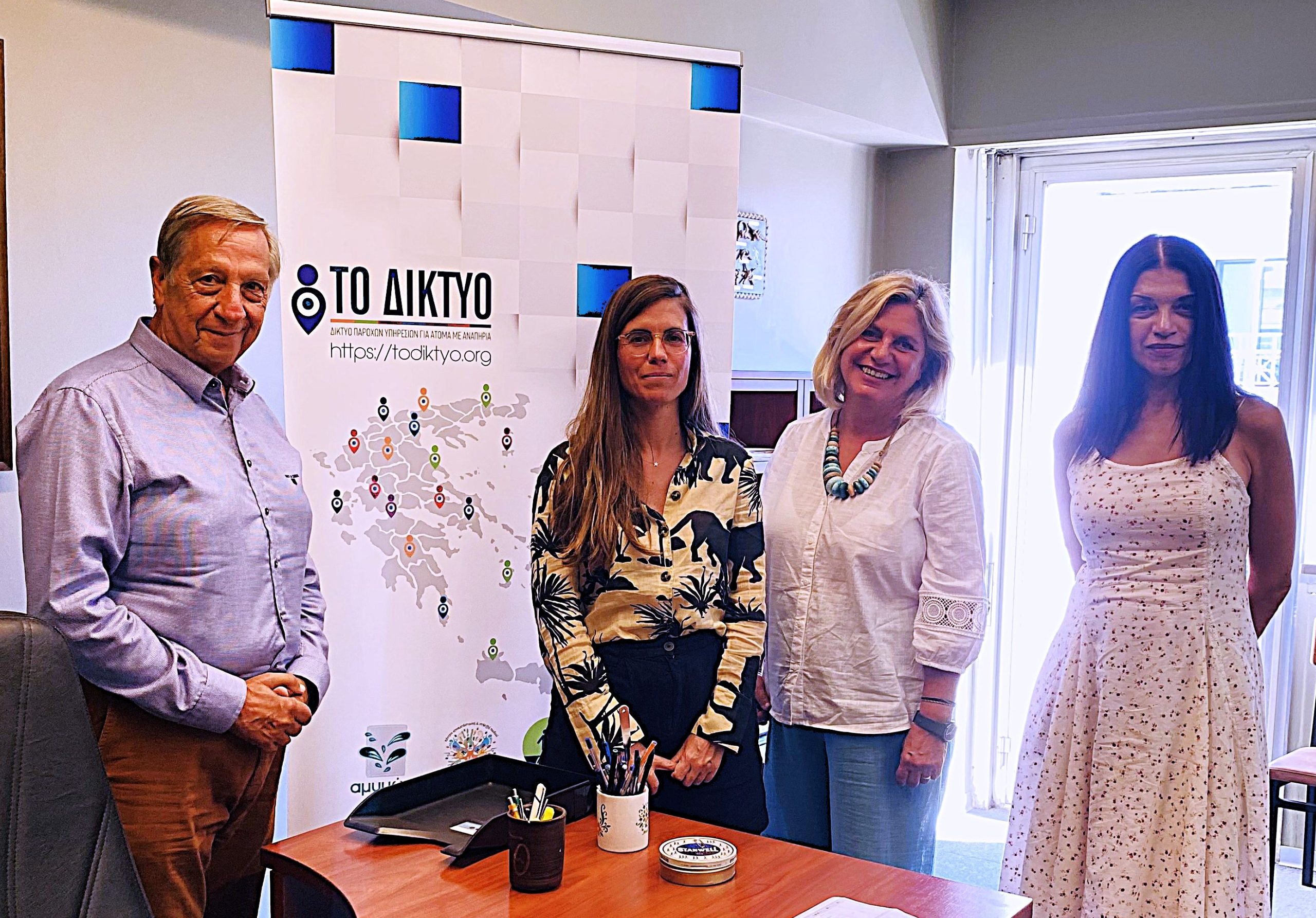
On Monday, September 8, 2025, a meeting was held at THE NET's office between the President, Mr. George Papadakis, the Secretary General of THE NET, Ms. Katerina Giannakopoulou, and the Secretary General of the European Platform for Rehabilitation (EPR), Ms. Alicia Gómez Campos, with the participation of Ms. Nektaria Sifaki, member of the EPR Board.
The discussion focused on the Network's progress to date, the possibilities for strengthening cooperation with the EPR, and future joint actions at national and European level.
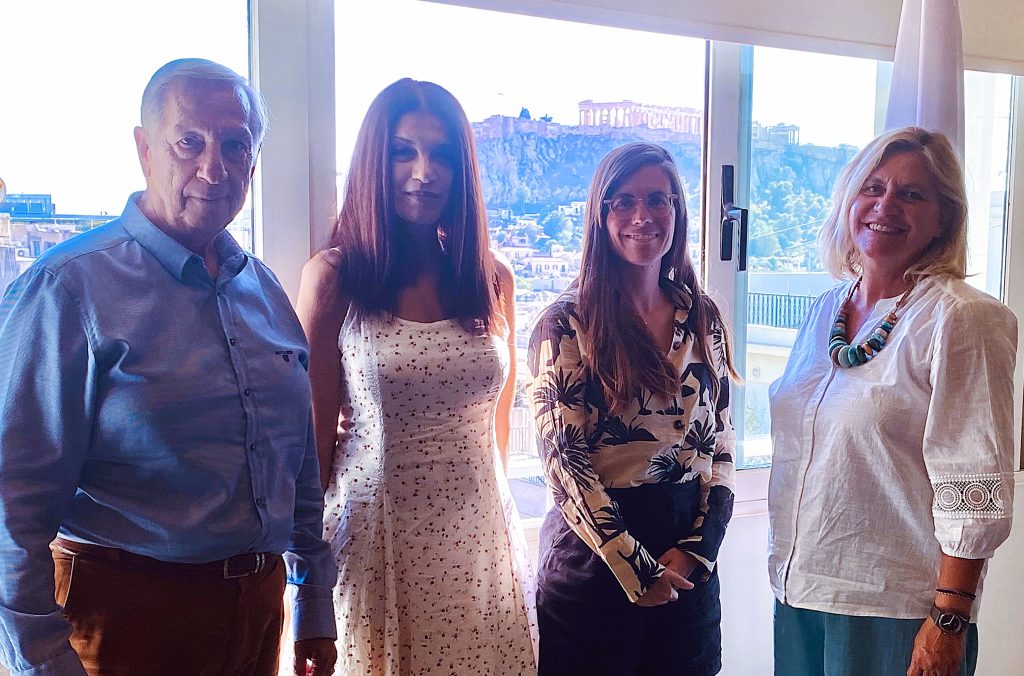
The meeting took place in a particularly positive spirit, confirming everyone's commitment to continuing our efforts to promote quality and social inclusion.
Moving forward together, building bridges of cooperation for the future!
IWorCon project - Final Edition
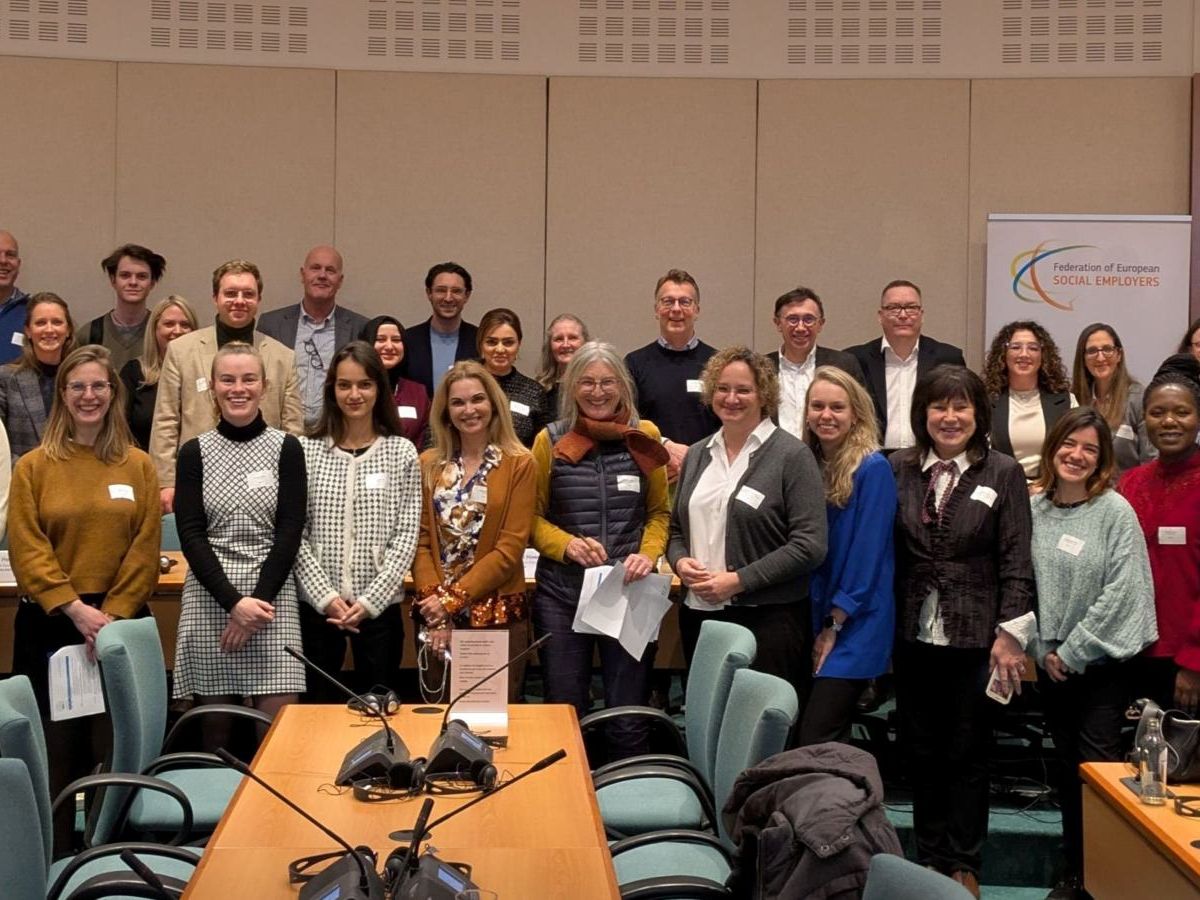
IWorCon aims to improve working conditions in the social services sector and further build capacity for social dialogue and employers’ organisations.
The IWorCon project is coming to an end. On 6 February, project partners, employers’ organisations, trade unions, social services providers, and researchers gathered for the project’s final conference.
IWorCon focused on improving working conditions in the social services sector, reinforcing the sector’s attractiveness and further building the capacity of employers’ organisations. Managed by UNIPSO (Belgium), the project brought together 17 partners from 13 European countries, including the EU sectoral social partners in social services, the Social Employers and EPSU.
The final conference highlighted key project outcomes, including recommendations on improving working conditions in social services. The 10 recommendations focus on a wide range of topics in the field of risk assessment, prevention, and workplace well-being. They are available in English, Finnish, French, German, Greek and Spanish.
IWorCon also produced a guide on building and managing effective employers’ organisations in social services. Developed through study visits to employers’ organisations in six countries, the guide covers topics such as governance and strategy, membership, financing, social dialogue, communication and representation. The guide is available in English, Bulgarian, Greek, Polish and Romanian.
Additionally, the final conference discussed the role of AI and digital tools in enhancing working conditions. Speakers presented real-world applications of AI and digitalisation in social services, such as AI-driven staff scheduling, automated meeting documentation, and digital training programmes. Participants emphasised the importance of transparent communication, training, and a bottom-up approach to AI adoption.
Project partners are committed to continuing their collaboration on topics such as physical and psychosocial risk prevention, the follow-up on the European Care Strategy implementation, and capacity building for employers’ organisations in social services. This includes a new project set to launch in April 2025.
Supporting documents:
Final conference presentations
For more information on IWorCon, visit the project webpage.
*This publication reflects the authors’ views only. The Commission is not responsible for any use that may be made of the information it contains.
